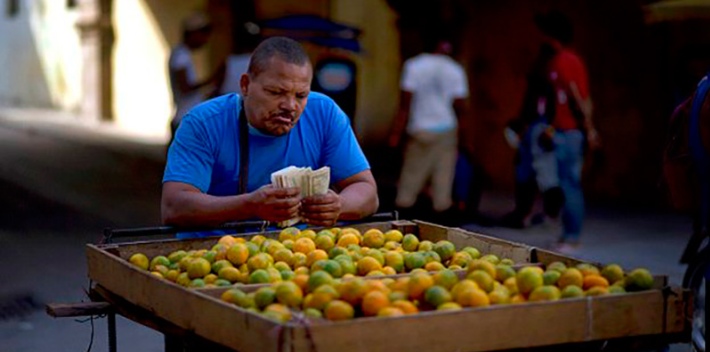
EspañolIn 2010, when the Castro government announced its plan to “update socialism,” some thought that Cuba had finally begun moving toward a market economy.
The centerpiece of the plan consisted in the firing of up to 1.3 million state employees and granting them permits to work “outside the state sector.” Cuban Orwellian doublespeak, it turns out, does not permit the utterance of “private sector,” even for the self-employed.
The permitted self-employment (known as cuentapropismo) is limited to humble domestic activities in more than 200 trades, such as shoe shinning, umbrella repairs, babysitting, and the like. Naturally, each of these activities is encumbered with stifling regulations and taxes.
Not surprisingly, nearly six years after the government’s announcement, the plan has produced little in terms of economic development. Rather, it has magnified the people’s hopelessness as manifested by the increased exodus of desperate Cubans seeking to reach the United States.
Raúl Castro’s version of economic reform is a minimalist adaptation of what Chinese reformist Chen Yun called the “birdcage economy.” I was recently reminded of this historic label by economist Fernando Menéndez in his work titled “The Market and the Birdcage: A Critical Assessment of Cuban Reforms and Transition Prospects.”
Although Deng Xiaoping is usually credited as the architect of China’s economic reforms, it was mostly Chen Yun who provided the theoretical and practical underpinnings for the strategies adopted by Deng. As early as the mid 1950s, Chen sought to moderate Chairman Mao Zedong’s radicalism, but it was not until after Mao’s death in 1976 that his birdcage theory was implemented.
Chen’s vision was to use market mechanisms to better allocate resources, but always within the confines of the central plan like a bird in a cage. Yet, he was fearful of losing control: “You must not hold the bird in your hand too tightly or it would be strangled. You have to turn it loose, but only within the confines of a cage. Otherwise, it will fly away.”
Chen’s idea was to always use the centralized state planning of a command economy to provide boundaries for the market mechanisms. Thus, the marketplace would be firmly restricted so as to not lose control. The birdcage could be large or small, but the reforms would not be allowed to “fly away.”
In the case of the Cuban reforms, General Castro has not only kept the birdcage extremely small, but has also increased repression to ensure that his self-employment permits do not result in a fly-away market. The Cuban cuentapropistas can barely spread their wings within the confines of the Castro birdcage.
It’s not just a question of the scope of the reforms or the size of the birdcage. It is also the accompanying mindset. When Deng Xiaoping introduced his version of market socialism in China, he famously declared that “to get rich is glorious.” In contrast, General Castro insists that any new, “non-state” economic activities will not be allowed to lead to the “concentration of property.” That is, the accumulation of wealth will not be permitted.
Recognizing General Castro’s economic adjustments as a birdcage economy is helpful to understand that the changes are not designed to promote economic freedoms or development. At best, they are a clumsy effort to improve resource allocation within an inescapable central plan. And the general has no intention to let the market fly away.
The Cuban political reality is that Raúl Castro and the Cuban military will limit, frame, and condition all allowed marketplace activities. This conditioning includes relaxing travel restrictions for Cubans, a policy that is often presented — incorrectly — as evidence of reforms.
In the context of the birdcage economy, granting travel permits is simply a method of exporting Cuban unemployment and underemployment to the United States. What US policymakers have not understood is that, in Cuban doublespeak, allowing work “outside the state sector” also means authorization to go work in the United States and send remittances back to Cuba.
With this methodological insight of the birdcage economic philosophy, all claims that Castro’s reforms are a gateway to political freedoms become vacuous. What is worse, such arguments embody a shameful, condescending proposition that Cubans should not aspire to be free.
The unspoken suggestion is that Cubans are unworthy of freedom and must acquiesce to live in a birdcage, but what is the intellectual justification for such a proposition?
 Versión Español
Versión Español












